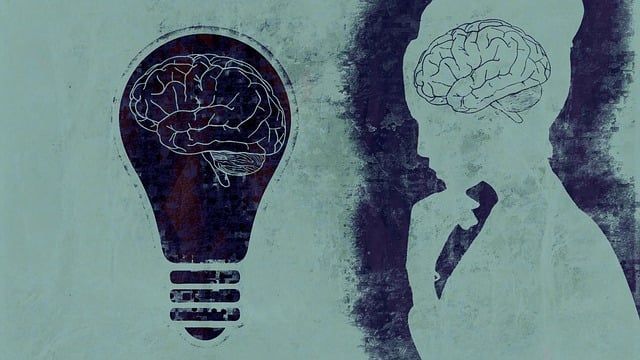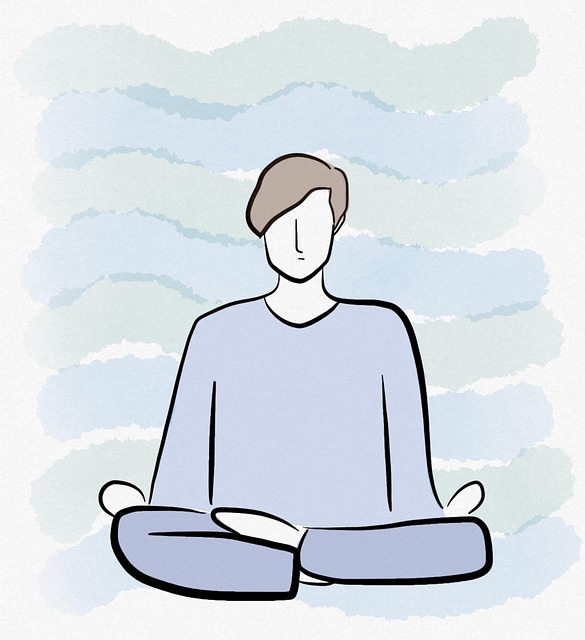Stress, a multifaceted response to various triggers, impacts physical and emotional well-being. Lakewood Mens Issues Therapy helps individuals identify stressors like work pressures, financial worries, relationships, health issues, and life transitions. By employing coping strategies like mindfulness meditation and self-care routines, mood management techniques (CBT), and holistic approaches, therapy equips men with tools to manage stress effectively. Through specialized programs, individual counseling, and emotional intelligence exercises, Lakewood Mens Issues Therapy fosters resilience, enhances overall well-being, and empowers individuals to take control of their mental health.
“Stress management is a vital skill in today’s fast-paced world, and understanding its intricacies is key to well-being. This article explores comprehensive strategies to tackle stress, from identifying triggers to long-term resilience building. We delve into the role of specialized therapy, like Lakewood Mens Issues Therapy, offering effective tools for daily relief and prevention. By examining the causes and effects of stress, this guide equips readers with a toolkit to navigate life’s challenges, fostering better mental health and overall resilience.”
- Understanding Stress: Unraveling the Causes and Effects
- The Role of Lakewood Mens Issues Therapy in Stress Management
- Effective Techniques for Daily Stress Relief and Prevention
- Building Resilience: Long-term Strategies for Stress Management
Understanding Stress: Unraveling the Causes and Effects

Stress is a complex response that stems from various triggers and can manifest in both physical and emotional ways. For many individuals seeking Lakewood Mens Issues Therapy, understanding the root causes of their stress is the first step towards recovery. Common stressors include work pressures, financial concerns, interpersonal relationships, health issues, and major life changes. These factors can lead to a range of symptoms, such as increased heart rate, muscle tension, irritability, insomnia, and difficulty concentrating.
By identifying specific triggers, individuals can begin to develop effective coping mechanisms. This may involve practicing mindfulness meditation to enhance focus and calmness or implementing self-care routines for better mental health. Mood management techniques, including cognitive behavioral therapy (CBT) strategies, can empower people to reframe negative thoughts and emotions associated with stress. Ultimately, understanding the intricate web of stress factors enables individuals to take proactive steps towards a healthier, more balanced life.
The Role of Lakewood Mens Issues Therapy in Stress Management

Lakewood Mens Issues Therapy plays a pivotal role in equipping individuals with effective stress management techniques tailored to men’s unique experiences and challenges. Through specialized programs and individual counseling, this therapy offers a safe space for men to explore and process their emotions, fostering self-awareness exercises that are essential for mood management. By delving into complex issues, from work pressures to interpersonal dynamics, Lakewood Mens Issues Therapy promotes emotional intelligence—a key component in navigating life’s stressors.
The therapeutic environment encourages open dialogue, allowing participants to gain insights into their triggers and develop healthy coping mechanisms. This holistic approach not only addresses the symptoms of stress but also enables men to build resilience, enhancing their overall well-being. By integrating evidence-based practices and self-reflective strategies, Lakewood Mens Issues Therapy empowers individuals to take control of their mental health and lead more fulfilling lives.
Effective Techniques for Daily Stress Relief and Prevention

Stress management is an essential aspect of maintaining mental wellness, and for men seeking support, Lakewood Mens Issues Therapy offers valuable resources. One effective technique to reduce daily stress involves incorporating mindfulness practices into one’s routine. Taking a few moments each day to focus on the present moment through deep breathing exercises or meditation can significantly lower anxiety levels. This simple yet powerful tool allows individuals to detach from stressful thoughts and gain clarity.
Additionally, regular physical activity is a game-changer in stress prevention. Engaging in exercises like yoga or even a brisk walk releases endorphins, which are natural mood lifters. These activities provide an outlet for tension release and offer a healthy distraction from stressors. Incorporating such practices into one’s daily or weekly schedule can create a robust buffer against the negative impact of stress on mental health, as supported by research in the Risk Assessment for Mental Health Professionals.
Building Resilience: Long-term Strategies for Stress Management

Building resilience is a key aspect of long-term stress management, and it’s an area where Lakewood Mens Issues Therapy excels. By fostering adaptability to challenging situations, individuals can develop a stronger ability to cope with life’s stresses. This involves cultivating a mindset that embraces adversity as an opportunity for growth. Through therapy, men can learn effective coping mechanisms tailored to their unique experiences, enhancing their emotional agility.
At Lakewood Mens Issues Therapy, our approach integrates cultural sensitivity in mental healthcare practice, ensuring support that respects individual backgrounds and perspectives. We also believe in the power of community outreach program implementation to combat stress on a larger scale. Additionally, crisis intervention guidance plays a crucial role in providing immediate assistance during intense periods, offering strategies to navigate crises and promoting long-lasting resilience.
Stress management is a vital skill, and the techniques discussed here, including the specialized services of Lakewood Mens Issues Therapy, offer practical tools for navigating life’s challenges. By understanding stress triggers, adopting daily relief strategies, and building resilience, individuals can significantly enhance their overall well-being. These methods empower people to take control of their mental health and lead more fulfilling lives.














